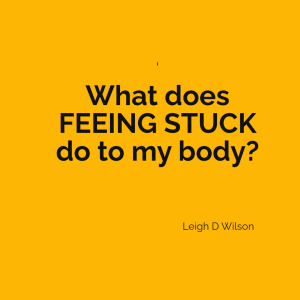Do you ever find yourself feeling stuck or unable to move forward in life? Maybe you have a big dream or goal that you want to pursue, but something is holding you back. If that sounds familiar, you’re not alone. Many people struggle with the fear of failure, which can prevent them from taking risks and reaching their full potential.
So, is fear of failure holding you back in life? The answer might surprise you. Fear of failure is a common human experience, and it can be a powerful motivator. In fact, a healthy fear of failure can help you stay focused and work harder to achieve your goals. But when fear of failure becomes paralysing and prevents you from taking action, it can hold you back and limit your potential.
If you’re struggling with fear of failure, here are a few things to keep in mind:
Everyone fails at some point. It’s important to remember that failure is a normal part of the human experience. Everyone fails at some point, and it’s often through failure that we learn the most and grow the most. So, don’t be too hard on yourself if you don’t succeed on your first try. Instead, use your failures as learning opportunities and keep moving forward.
- Perfectionism can be a trap. If you’re a perfectionist, you might be especially prone to fear of failure. But the truth is, perfectionism can be a trap that keeps you from taking risks and trying new things. Instead of striving for perfection, focus on progress. Celebrate small wins and use them as motivation to keep moving forward.
- Failure is not the end. It’s easy to get caught up in the idea that failure is the end of the road. But in reality, failure is just a temporary setback. You can always pick yourself up, learn from your mistakes, and try again. Keep in mind that some of the most successful people in the world have experienced failure along the way.
- Take small steps. If fear of failure is holding you back from pursuing a big goal or dream, try taking small steps towards that goal. Break it down into manageable tasks and focus on making progress, rather than achieving perfection. As you gain confidence and momentum, you’ll be more likely to take bigger risks and tackle larger goals.
One of the most common ways that fear of failure can hold people back is by preventing them from taking risks. If you’re afraid of failing, you may be hesitant to try new things or step outside your comfort zone. This can limit your potential and prevent you from experiencing new opportunities and growth.
Another way that fear of failure can hold people back is by leading to procrastination. When you’re afraid of failing, it’s easy to put things off and avoid taking action. But procrastination only makes things worse, as it creates more stress and pressure in the long run.
It’s also important to recognize that fear of failure can be closely linked to other issues like anxiety and perfectionism. If you struggle with anxiety, you may be more prone to fear of failure, as anxiety can create a sense of uncertainty and self-doubt. Similarly, if you’re a perfectionist, you may be more likely to fear failure, as you hold yourself to an impossibly high standard.
So, what can you do to overcome fear of failure and start pursuing your goals with confidence? Here are a few additional tips:
- Practice self-compassion. It’s important to be kind and forgiving to yourself, especially when you experience setbacks or failures. Treat yourself with the same compassion and understanding that you would offer to a close friend.
- Reframe your mindset. Instead of viewing failure as a negative outcome, try to reframe it as a learning opportunity. Every failure is a chance to gain new insights and skills that can help you in the future.
- Seek support. Don’t be afraid to reach out to friends, family, or a mental health professional if you’re struggling with fear of failure. Talking to someone can help you gain perspective and find new strategies for overcoming your fears.
Remember, everyone experiences fear of failure at some point in their lives. The key is to recognize when it’s holding you back and take steps to overcome it. With time and practice, you can learn to embrace the challenges and risks of life and pursue your goals with confidence and resilience.
In addition to all this, it’s important to understand that fear of failure is often closely tied to our sense of self-worth. When we fear failure, we may worry that it will reflect poorly on us as individuals or make us feel like we’re not good enough. This can create a negative feedback loop, as the more we fear failure, the more it reinforces our negative beliefs about ourselves.
To break out of this cycle, it’s important to focus on building a positive sense of self-worth that isn’t tied to external factors like success or failure. This can involve practicing self-care, setting realistic goals, and celebrating your accomplishments, no matter how small. By building a strong sense of self-worth, you can approach challenges and failures with more resilience and confidence.
Another helpful strategy is to reframe the way you think about failure. Instead of seeing it as something to be feared or avoided, try to see it as a natural and necessary part of the learning process. Every successful person has experienced failure at some point, and it’s often through those failures that they were able to learn and grow.
It can also be helpful to cultivate a growth mindset. Instead of seeing your abilities and talents as fixed and unchangeable, a growth mindset views them as something that can be developed and improved over time. With a growth mindset, you’re more likely to see challenges as opportunities for growth and learning, rather than as threats to your self-worth.
Another way to overcome fear of failure is to develop a plan for dealing with setbacks. When we fear failure, we often focus solely on the negative outcomes and don’t consider how we can recover from them. But by developing a plan for dealing with setbacks, we can feel more prepared and confident when we face challenges.
This plan can involve thinking about what steps you’ll take if things don’t go as planned, who you can turn to for support, and what you can learn from the experience. By preparing for the worst-case scenario, you can approach risks with greater peace of mind and resilience.
It’s also important to remember that failure is not always a bad thing. In fact, failure can be a valuable learning experience that can help us grow and improve. By embracing failure as a natural part of the learning process, we can approach risks with greater curiosity and openness, and be more willing to take chances.
Finally, it’s worth noting that fear of failure is often a symptom of a larger issue, such as anxiety, self-doubt, or low self-esteem. If you’re struggling with fear of failure, it may be helpful to explore these underlying issues and work on building a stronger sense of self-worth and confidence.
This can involve practices such as meditation, journaling, or working with a therapist or coach. By addressing these underlying issues, you can build a more resilient and confident mindset that can help you overcome fear of failure and pursue your goals with greater determination and optimism.
Perhaps unsurprisingly, one of the most effective ways to overcome fear of failure is to take action. When we’re caught up in fear and self-doubt, it’s easy to get stuck in a cycle of analysis paralysis, where we overthink and overanalyze our options without actually taking any action. This can prevent us from making progress and building momentum towards our goals.
To break out of this cycle, it’s important to take small, manageable steps towards your goals, even if they feel scary or uncertain. By taking action, you can build confidence and momentum, and prove to yourself that you’re capable of making progress, even if you don’t have everything figured out.
Another helpful strategy is to focus on the present moment, rather than getting caught up in the future or past. When we’re afraid of failure, we may worry about all the things that could go wrong in the future or dwell on past mistakes or failures. But by focusing on the present moment, we can reduce our anxiety and build greater resilience and confidence.
Practices such as mindfulness, meditation, or yoga can be helpful for developing a more present-focused mindset. By learning to stay grounded in the present moment, you can approach challenges with greater clarity and calm, and be more open to new possibilities and opportunities.
Finally, it’s important to remember that everyone experiences fear of failure at some point in their lives. You’re not alone, and it’s okay to ask for help or support when you need it. Whether it’s talking to a friend, family member, or mental health professional, reaching out for support can help you gain perspective and develop new strategies for overcoming your fears.
In conclusion, fear of failure can be a powerful motivator or a major obstacle, depending on how you approach it. If you’re struggling with fear of failure, try to keep things in perspective, focus on progress rather than perfection, and take small steps towards your goals. With time and practice, you can learn to embrace failure as a natural part of the learning process and use it to fuel your growth and success. Good luck
Please feel free to reach out to me if you would like some professional help to let go of your fear of failure.
#anxiety #stress #worry #overwhelm #procrastination #selfconfidence #selfesteem #burnout #selfsabotage











